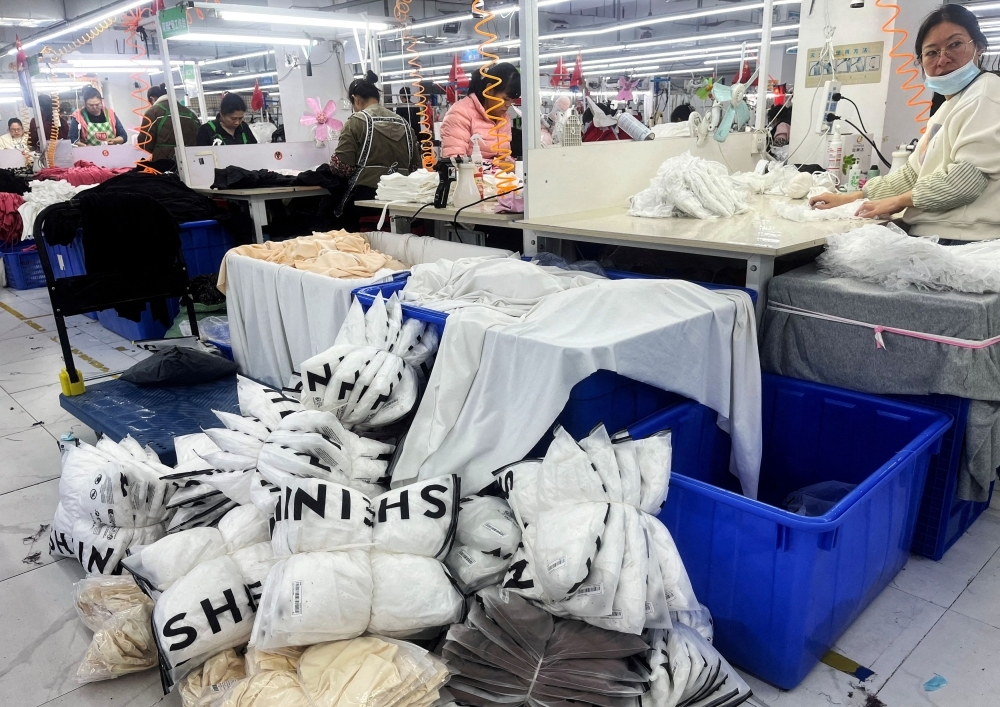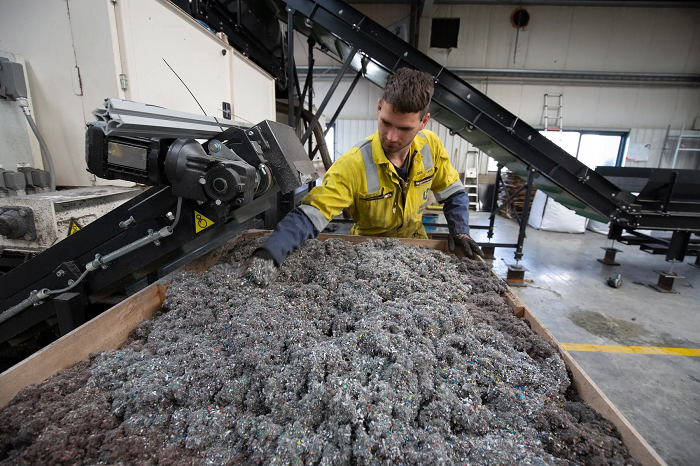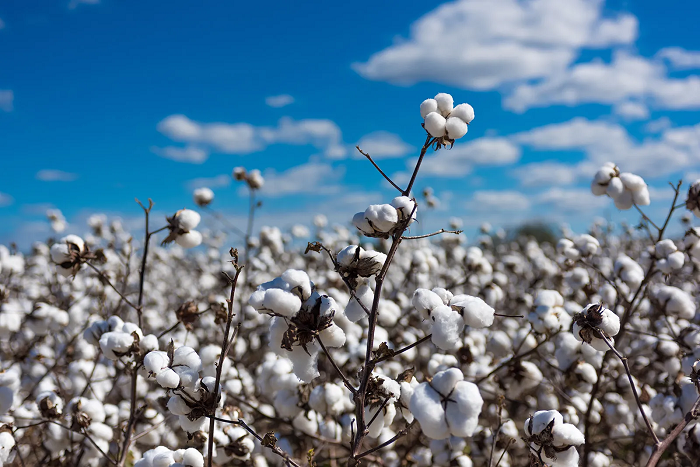FW
US agriculture has become too dependent on China and needs to diversify and build demand with many different markets. The TPP is seen as opening new markets for US farmers. The American feeling is re-entering the TPP would be good for agriculture and that the Japanese market, in particular, would make up some of the losses the US is having with China.
The TPP trade deal would have given US farmers lower tariffs and great market access to all the nations in Asia and the South Pacific, but strong opposition by labor unions forced the US to abandon the deal. Now tariffs against China are causing major problems for US agriculture and hence the rethink. The US intends to renegotiate the trade pact and sign revised free trade agreements with Japan, South Korea and Canada.
TPP was proposed in 2010. As a multilateral trade framework outside the World Trade Organization, the TPP intends to further reduce tariff barriers and enhance unified market rules including intellectual property protection. The US is likely to sign trade pacts with other trading partners, including Japan, South Korea, and Canada. In this way, the US hopes to force China to make more concessions in lowering tariffs, reducing subsidies, opening up markets, and enhancing intellectual property rights protection.
As per BGMEA data, Bangladesh’s apparel export to India saw an increase of 111 per cent (on a point-to-point basis) in this time period. In monetary terms, the total apparel export amounted to $218 million, it was $97 million at the same time last year. And as per Bangladesh’s Export Promotion Bureau, between July and December last year, garment shipments to India increased 5.99 per cent year-on-year to fetch $111.33 million.
Global retail giants like H&M and Walmart have already started sourcing from Bangladesh to cater to Indian consumers. With a host of retailers increasing their footprints in the country, sourcing from Bangladesh is set to get a further boost. M&S and GAP are planning to open another 50 stores in India in the next two years, while Adidas has outlined plans to open around 30-40 big flagship stores across Delhi, Mumbai, and Bengaluru, by 2020, which in turn has prompted many more to enter the lucrative Indian market. Only recently, Uniqlo announced its first store to open in Delhi in 2019. Aeropostale, an American teen fashion retailer, has chosen to enter India over China, and expects India to be among its top three markets over the next four years with revenue target of US $ 74.12 million.
IKEA has already opened its first store in Hyderabad while future stores are reportedly planned in Mumbai, Delhi-NCR, Bengaluru, Pune, Surat, and Ahmedabad.
Clean Clothes Campaign has branded the newly announced minimum wage for Bangladeshi garment workers as outrageous. The NGO claims that the wage is nowhere near a living wage. The Bangladesh Minimum Wage Board for readymade garment workers set Tk8,000 (US$95) as the new minimum monthly salary. Employees will start receiving the new level in December 2018. The rise represents a 53 per cent increase, albeit the last rise in wages workers received was five years ago.
IndustriALL Bangladesh Council (IBC) had clearly communicated to the Minimum Wage Board, and requested for an immediate review. Clean Clothes Campaign has supported the board’s call for a review of the announced amount, in light of the demand of workers’ unions for the new minimum wage to be set at 16,000 tk.
As a result of the tariff wars, US companies like Walmart, Samsonite and Gap have already expressed plans to raise prices. Walmart and its suppliers will pay the cost of increased duties, which are simply taxes levied on products at the border. As a result, either consumers will pay more, suppliers will receive less, retail margins will be lower, or consumers will buy fewer products or forego purchases altogether.
American business, American workers and American families will be negatively impacted by the decision of their country to impose tariffs. Also, the fact that the tariffs will start at ten per cent now and will rise to 25 per cent in January will create additional chaos in the fashion industry’s supply chains, which will have a wide-ranging negative impact on consumers, companies, and jobs in the United States.
American industry feels these tariffs on imports of textiles, apparel and accessories do little to punish China for its intellectual property and technology transfer prices but do a lot to harm American fashion brands and retailers as well as consumers of their products.
The latest list of tariffs did remove some textile items like rayon fiber, some dyes and certain chemicals. Had US textile manufacturers been forced to pay higher duties on the excluded items, it would have raised costs for manufacturers making goods that must compete with like Chinese products.
The Lifestyle Agency® along with, the Turkish Apparel Center (TAC) recently launched a trade event of a New York-based luxury designer. This event unites international Turkish designers and garment manufacturers with US based retail buyers, merchandisers, stylists, fashion trade journalists and other fashion insiders to foster economic opportunities that inspire commerce with the fashion capital with Europe and Africa.
This initiative will create a two-way path for innovative opportunities in international retail distribution and commerce for emerging fashion professionals, starting here in New York and fashion markets abroad. The event will be held at the TAC Showroom, New York. Its curated pool of international designers will interact with attendees of this invite-only event on Tuesday, September 25, 2018. It has invited various retailers including buyers from JCPenney, Against All Odds (AAO), Lord and Taylor, Jimmy Jazz, South Pole, Porta Bella men's stores, Ilys, etc.
Garment manufacturers in Bangladesh are developing their own brands. This is true of export-oriented companies as well as domestic market-oriented brands. And customers are accepting these brands. They feel comfortable purchasing their fashion products from local brands’ outlets since these brands like Dorzi Bari, Aarong and Anjans offer a quality product at a reasonable price and provide the most up-to-date trends and styles.
Snowtex, an export-oriented garment manufacturer, launched its own brand Sara in May this year. Snowtex manufactures woven items like outwear and sportswear and exports to Europe and other countries including Canada, Russia and Japan and has been in the export trade for 20 years.
Dekko is one of Bangladesh’s leading exporters of readymade garments. These go to major players in the international market including Zara, Esprit, and Tommy Hilfiger. The group launched its first branded showroom Klubhaus in May 2018.
Red Origin is a brand from the Partex Group. Launched in 2013 initially, the brand returned in a bigger way in 2016. It sources fabric from the local market and has its own factory where nearly 150 people work to design and produce the clothing for the domestic market.
Dorji Bari combines western fashion with tradition. Its main target group is the young generation.
Zimbabwe Clothing Manufacturers' Association (ZCMA) has urged the government to implement a colonial era Bilateral Trade Agreement (BTA) it signed with South Africa in 1964 in a bid to boost the local industry. Although, South Africa had argued that all trade should be done within the Southern African Development Community (SADC) trade protocols, BTA had some preferences towards SADC, mainly due to the refusal by South Africa to liberalise areas of the regional trade protocols.
The rest of the region should also be supported to develop so that our economies can also be more industrialised. The clothing and textile sectors had formalised an agreement on support measures, which would greatly enhance the competitiveness of both industries.
The support measures were regulatory and relatively simple but the implementation had stagnated. It was also vital that the industry received allocations of foreign currency to import the raw materials, which were not made locally. The agreement provided targeted support for cotton value addition and textile development but most raw materials the clothing sector required still needed to be imported.
Picanol will launch its newest rapier, the GTMax-i 3.0, at ITMA-CITME 2018. The machine combines a redesigned gripper drive with extra reinforced sley drive and further integrates the future-oriented BlueBox electronic platform for higher production speeds. The machine has been refurbished completely, with a special focus on ergonomy and user friendliness.
The company will display four machines of this type at the show. Of these, a GTMax-i 3.0 will be weaving a denim fabric, another one will be weaving a zebra style curtain fabric. On the Bonas booth a decoration fabric will run on a GTMax-i 3.0 with jacquard, whereas on the Tongxiang booth a GTMax-i 3.0 will be weaving label.
On the Picanol booth two OptiMax-i 190 cm weaving para-aramide and shirting are being presented. As for the airjet machines, two OMNIplus Summum will be shown, one weaving a bottom weight fabric and the other weaving sheeting. On the Stäubli booth a TERRYplus Summum with jacquard is weaving a high quality terry fabric.
In total 9 Picanol machines will be on display, of which six will be displayed on its own booth, one Picanol TERRYplus Summum with jacquard at the Stäubli booth and one GTMax-i 3.0 on the Bonas booth. On the booth of Tongxiang a GTMax-i 3.0 will be weaving label.
Chinese businesses may export their goods through Vietnam to the US amid the trade war. They can also set up factories in Vietnam and manufacture products with materials imported from China. Chinese garment products would be labeled as made in Vietnam and exported to the US.
This will result in bad consequences for Vietnam’s textile and footwear industry as the US might impose the same tariffs on Vietnam as it does on China. Vietnam’s industry feels if products’ origin is not traced and violations are not penalized, it will have to suffer consequences. In May this year the US slapped anti-dumping duties of 199.76 per cent and countervailing duties of 256.44 per cent on imports of cold-rolled steel produced in Vietnam using Chinese-origin substrate.
But the escalating trade war will create opportunities for Vietnamese exporters of consumer goods to expand their market share in the US. About 27 per cent of Chinese goods set to be affected by the new tariffs are consumer goods, and Vietnam exports many similar items to the US. Apart from footwear and textile products, other products to benefit from the trade war are wooden furniture, electronics, sports equipment, and toys. The US has been Vietnam’s largest trading partner this year.
The Ministry of Industry, Trade and Investment and Shandong Ruyi International Fashion Industry have signed an MoU to establish a cotton value chain industry from cotton growing to ginning, spinning, textile manufacture and garment production. The factories will be established in Katsina, Kano, Abia and Lagos states. They will manufacture of at least 300 million metres of African print. This is expected to meet about 20 per cent of West Africa’s demand.
The Nigerian cotton industry will also receive an investment of $2bn (N610bn) that will enable the country to create its first ever cotton value chain sector. The investments, according to the Ministry of Industry, Trade and Investment, will involve aggregation and offtake of cotton from farmers for ginning, spinning and weaving. The pact will lead to the production of cotton and denim garments for local consumption and export.











